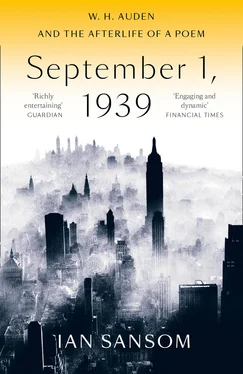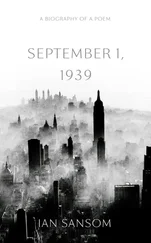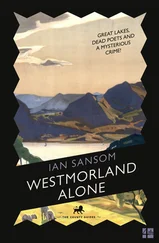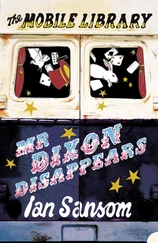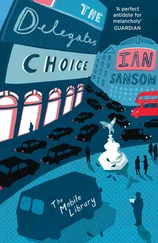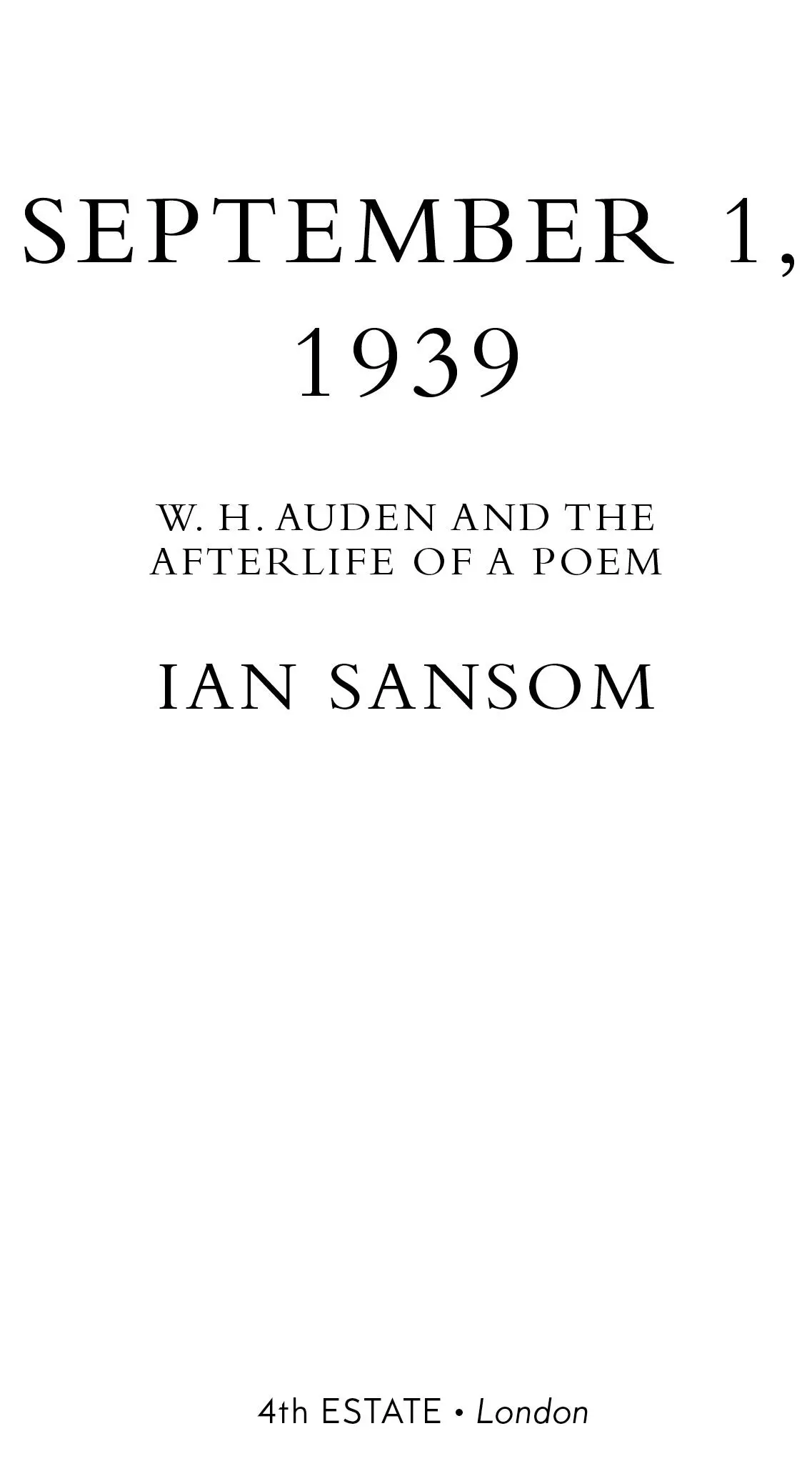
4th Estate
An imprint of HarperCollins Publishers
1 London Bridge Street
London SE1 9GF
www.4thEstate.co.uk
This eBook first published in Great Britain by 4th Estate in 2019
Copyright © Ian Sansom 2019
Cover design by Heike Schüssler
Cover photograph © Getty Images/Hulton Archive/Stringer
Ian Sansom asserts the moral right to be identified as the author of this work
Unpublished writings by W. H. Auden are quoted with the permission of the Estate of W. H. Auden.
‘September 1, 1939’ from Another Time by W. H. Auden (1940, Faber & Faber).
A catalogue record for this book is available from the British Library
All rights reserved under International and Pan-American Copyright Conventions. By payment of the required fees, you have been granted the non-exclusive, non-transferable right to access and read the text of this e-book on screen. No part of this text may be reproduced, transmitted, down-loaded, decompiled, reverse engineered, or stored in or introduced into any information storage and retrieval system, in any form or by any means, whether electronic or mechanical, now known or hereinafter invented, without the express written permission of HarperCollins.
Source ISBN: 9780007557233
Ebook Edition © July 2019 ISBN: 9780007557226
Version: 2020-06-17
For N. J. Humphrey
1 Cover
2 Title Page
3 Copyright
4 Dedication
5 Contents
6 Wow!
7 September 1, 1939
8 Your Least Favourite Auden Poem?
9 Just a Title
10 1
11 I ≠ A
12 The Modern Poet
13 Not Standing
14 A Not Insignificant Americanism
15 A Rolling Tomato Gathers No Mayonnaise
16 Clever-Clever
17 Various Cosmic Thingummys
18 Offensive Smells
19 2
20 A Little Spank-Spank
21 Strangeways
22 Is Berlin Very Wicked?
23 Do Not Tell Other Writers to F*** Off
24 3
25 The Latin for the Judgin’
26 4
27 Aerodynamics
28 Get Rid of the (Expletive) Braille
29 Tower of Babel Time
30 5
31 The Liquid Menu
32 Below Average
33 Soft Furnishings
34 6
35 Talking Trash
36 You Can’t Say ‘Mad’ Nijinsky
37 7
38 Homo Faber
39 8
40 As Our Great Poet Auden Said
41 We Must Die Anyway
42 9
43 Twinkling
44 A New Chapter in My Life
45 Twenty-Five Years’ Worth of Reading
46 Also by Ian Sansom
47 About the Author
48 About the Publisher
Landmarks CoverFrontmatterStart of ContentBackmatter
List of Pages iii iv v 1 2 3 4 5 6 7 9 10 11 12 13 15 16 17 18 19 20 21 22 23 24 2526 27 28 29 30 31 32 33 34 35 36 37 38 39 40 41 42 43 44 45 47 48 49 50 51 52 53 54 55 56 57 58 59 60 61 62 63 64 65 66 67 68 69 70 71 72 73 74 75 76 77 78798081 828384858687888990 9192939495 96979899100101102103104105 106107108109110111112 113 115116117118119120121122123124125126 127128129130131132 133134135136137138139140141142143 144145146147148149 151 153154155156157158159160161162163164165166167 169 171172173174175 176177178179180181182183184 185186187188189190191 193 195196197198199200201202203204 205206207208209210211 212213214215216217218 219 221222223224225226227228229 230231232233234235236237 239 241242243244245246247248249250251252253 255 257258259260261262263264265266267 268269270271272273274 275 277278279280281282283284285286287288289290291 292293294295296297298299300301302303304 305306307308309310311312313314315316317318319320321322323324325326327328329330331332333334335336337338339340341 ii
At just after five o’clock on 11 June 1956, W. H. Auden stood up to give his inaugural lecture as Oxford Professor of Poetry at the Sheldonian Theatre, the very heart of the university, adjacent to the Bodleian and the Clarendon Building, opposite Blackwell’s bookshop on Broad Street, and a short walk from Auden’s old college, Christ Church.
It was a warm afternoon. Auden, famously crumpled, had enjoyed, I imagine, a good lunch and was sweating in his thick black MA gown with its distinctive, gaudy crimson shot-silk hood. He was buzzing: he had long since adopted a strict chemical daily routine to enable him to work more efficiently. These ‘labor-saving devices’, in what he called his ‘mental kitchen’, included not only strategic quantities of alcohol, coffee and tobacco, but also the amphetamine Benzedrine, as a pick-me-up at breakfast, and the barbiturate Seconal, to bring him down at night. ‘If you ever get that depressed unable-to-concentrate feeling, try taking Benzidrine [sic] Tablets,’ he advised his friend Annie Dodds, ‘but not too many.’
The Sheldonian was full: the audience were expectant. The University Chancellor, the Vice-Chancellor and the Proctors were in full fig – black gowns, gold lace, white tie. The undergraduates and graduate students wore subfusc and were crammed into the high-tiered seating under the lurid sunburst-orange ceiling fresco by King Charles II’s court painter Robert Streater, which depicts Truth descending upon the Arts and Sciences like the wolf on the fold, dispelling ignorance from the university.
It was quite a return.
In 1928 Auden had left Oxford with a miserable Third in English, and his appointment as professor was not without controversy. The university elects its Professor of Poetry unusually – indeed, uniquely – by a vote among its graduates, and Auden remained a divisive figure in England. The two other candidates were Harold Nicolson, a well-connected author, diplomat, politician and husband to Vita Sackville-West, and G. Wilson Knight, an eminent and massively prolific Shakespeare scholar, author of both the standard work on Shakespearean tragedy, The Wheel of Fire (1930), and the bestselling The Sceptred Isle: Shakespeare’s Message for England at War (1940).
Nicolson and Wilson Knight had obvious merits – they were sensible, distinguished, learned individuals. And they were easily and identifiably English . Auden, in contrast, was an eccentric, remote, supernational sort of a figure, a poet celebrity, English-born but now a self-proclaimed New Yorker who had developed a strange, drawling mid-Atlantic accent – recently further complicated after he’d had his few final teeth removed and been fitted with dentures – and who made a living ‘on the circuit’, touring American campuses delivering his lectures and reading his poems. He saw himself as a kind of itinerant preacher:
An air-borne instrument I sit,
Predestined nightly to fulfil
Columbia-Giesen-Management’s
Unfathomable will,
By whose election justified,
I bring my gospel of the Muse
To fundamentalists, to nuns,
to Gentiles and to Jews.
(Auden, ‘On the Circuit’)
Auden’s usual touring schedule did not include the English Midlands. The closest he came was spending his summers in bohemian fashion on the Italian island of Ischia with his lover Chester Kallman. (‘They engaged a handsome local boy known as Giocondo’, notes one biographer, ‘to look after the house, and possibly also to provide sexual services.’) Though popular among undergraduates, who weren’t entitled to vote, Auden was not considered a serious candidate for the professorship by the more senior members of the university.
There was also the small matter of his having abandoned England in 1939, and having taken the oath of allegiance and become an American citizen in 1946, something he was never allowed to forget, and for which he was certainly never forgiven. On learning of Auden’s death in 1973, the novelist Anthony Powell was rendered almost speechless with joy and disgust, declaring, ‘I’m delighted that shit has gone … It should have happened years ago … Scuttling off to America in 1939 with his boyfriend like a … like a …’ In 1956, memories of the war were still fresh. G. Wilson Knight had served as a dispatch rider in World War I, and in World War II Nicolson had been parliamentary secretary at the Ministry of Information. Auden’s war record was rather less distinguished. When he had left England in 1939, questions were asked in Parliament about his departure: he was a disappointment to the nation. When he arrived back in London at the end of the war, wearing his honorary US Army major’s uniform, as part of his role in the US Strategic Bombing Survey, people were appalled.
Читать дальше
